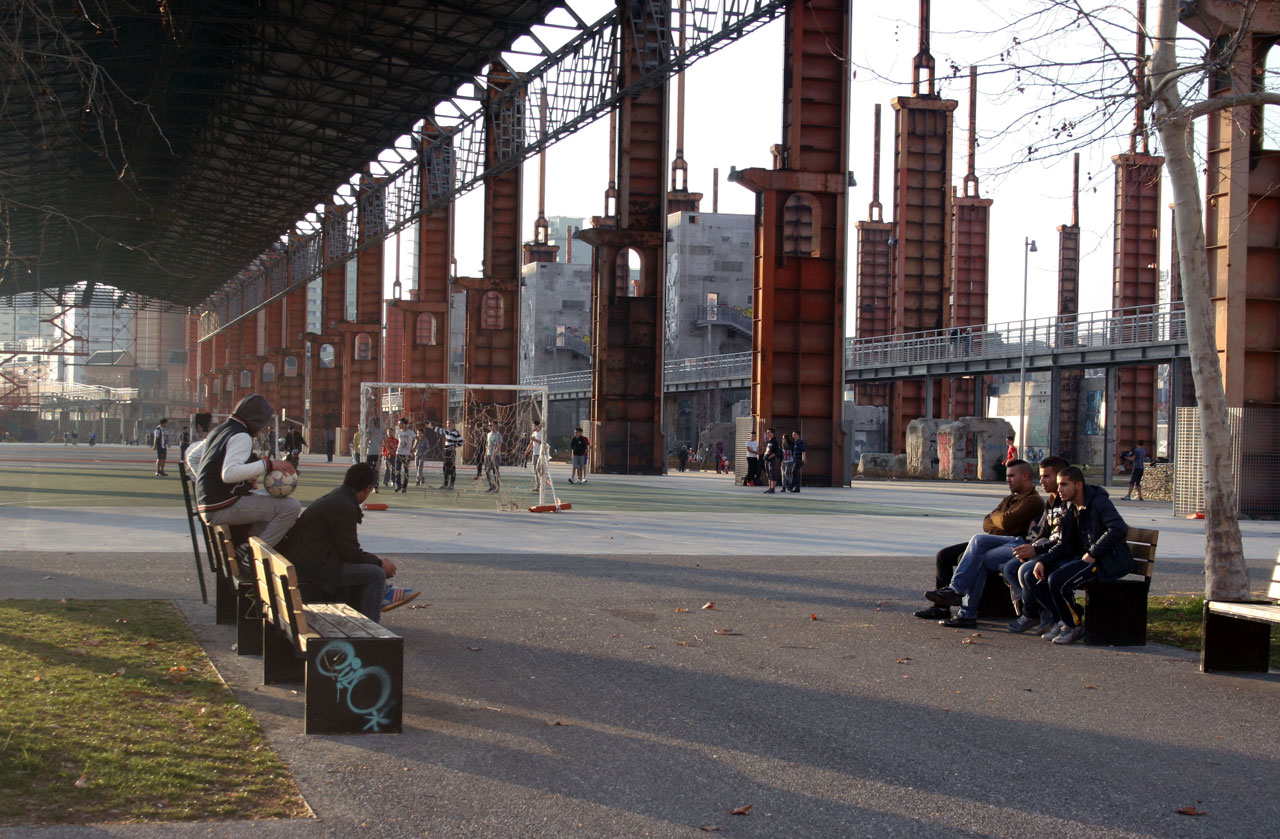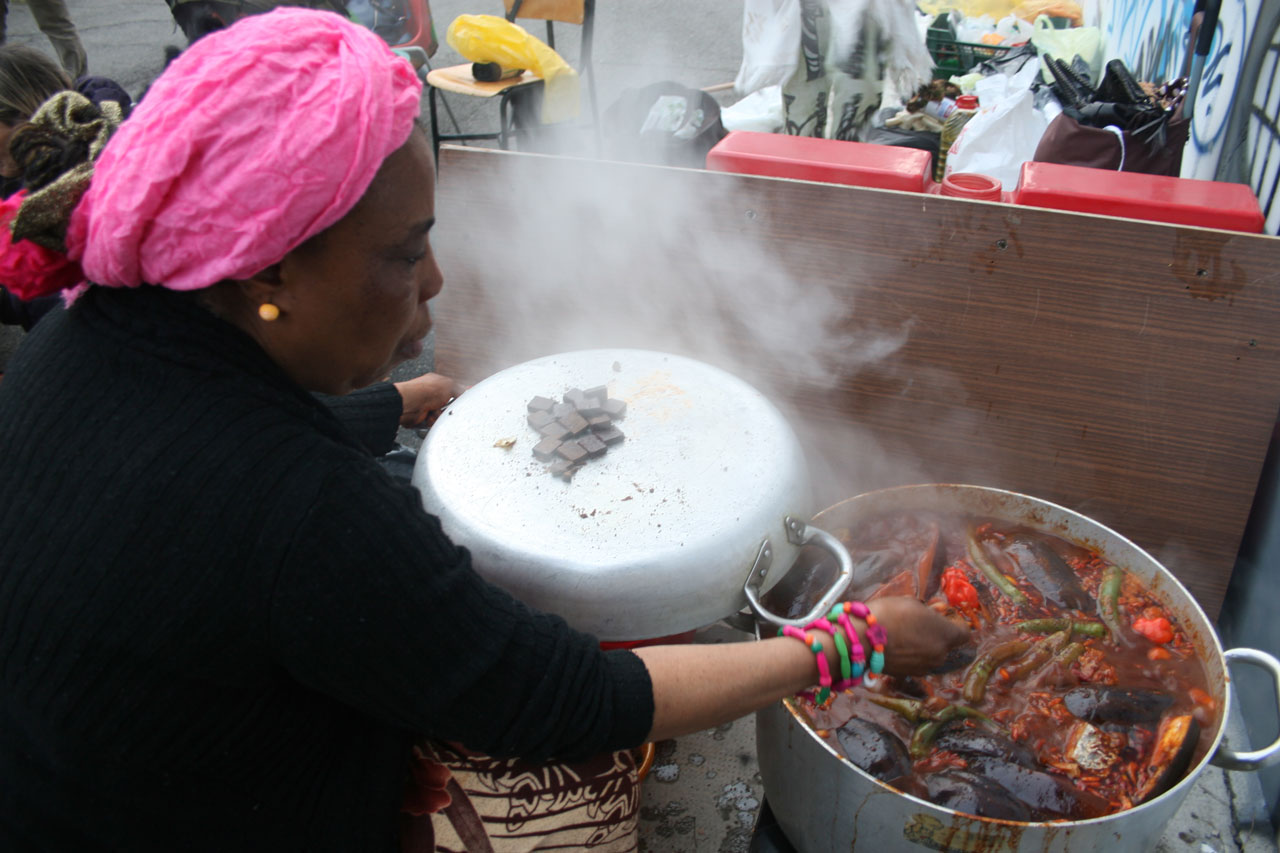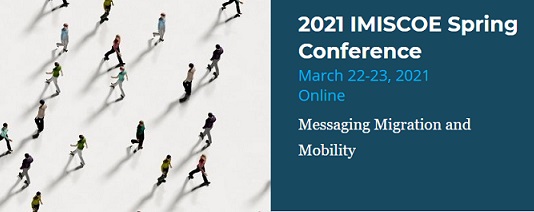The Centre on Migration, Policy and Society (COMPAS) at the University of Oxford is organising the 2021 IMISCOE Spring conference on March 22-23 2021 (online event) on the topic of Messaging Migration and Mobility.
General registration for the conference has now closed. If further places become available we will announce it on Twitter.
View the conference programme.
Please note, this version does not contain links to the sessions; only registered participants will have access to the sessions.
Migration and mobility, as well as related issues such as inclusion, remain high on global policy agendas. Recent political shifts have both contributed to and been impacted by intensifying negative public attitudes towards minorities, particularly migrants and asylum-seekers. Meanwhile, the COVID-19 pandemic and responses to it such as lockdowns and the introduction of border controls have brought mobility and immobility into sharp relief, while international attention to racism and its impacts—precipitated by protests related to the Black Lives Matter movement—has both demanded attention to different forms of injustice and reinvigorated discussions about how to address them.
In policy and public domains, communication about mobility—its scale, composition, dynamics, impacts, and causes—greatly matters. Public debates about migration are both complex phenomena as well as related to dynamics in migration policymaking. Moreover, the nature of communication in and about global mobilities has been dramatically changing due to shifts in technologies, platforms, racial inequalities and migrants’ own behaviours. These observations are relevant beyond countries and regions typically described as destinations for migrants, speaking to issues arising in sending and transit countries worldwide.
But there remain considerable challenges in empirically describing and disentangling these relationships, theorising their causes, and drawing out their implications for policymaking, social movements, and journalism practice. First, how and through which means do public narratives and attitudes on migration and mobility impact other kinds of debates happening in media, policy, or civil society? Despite many studies demonstrating how message content influences subsequent attitudes, less attention has been placed on the ways that messages and perceptions relate across domains. What is more, evidence on messages’ effectiveness is often limited by a lack of distinction among migrant and minority groups themselves—despite the importance of this for policymaking.
Second, what kinds of political, commercial, social, organisational or cultural factors matter for message building—particularly in attracting, persuading, and maintaining audiences? Research in the frame- and agenda-building traditions emphasises studying how messages emerge and evolve. Yet it is less clear how this happens with respect to migration, inclusion, and related issues. There is also a need to recognise how migrants and minority groups contribute to, challenge, and reshape both messages’ content and delivery.
Finally, how are new platforms, data collection methods, and technologies changing the ways that migrants, citizens, or receiving communities and states experience and respond to mobility, and with what ethical and practical implications? Information can be crucial for migrants’ decisions, and technologies shape refugees’ journeys. But as these media and technologies rapidly change, it is important to take stock of these shifts by placing them alongside other more established ways of accessing and sharing messages—either empirically through multi-modal studies or by tracing their development historically.
Scholars in multi-disciplinary fields including political communication, media studies, science and technology studies, and sociology (among others) have addressed these kinds of questions using diverse research methods and designs. Under the theme of ‘Messaging Migration and Mobility’, the 2021 IMISCOE Spring Conference aims to critically engage with and extend upon these bodies of work. Using migration and mobility as lenses onto the dynamics of messaging and communication as well as their relationships to public attitudes, we welcome cross-cutting approaches that address significant gaps in understanding which would uniquely benefit from further attention from the field of migration studies.
We intentionally take wide and plural views of key concepts including ‘mobility’, ‘media’, ‘messages’, and ‘public attitudes’. We particularly welcome contributions that speak to and beyond established categories within the fields of migration studies, media/communication studies, and public opinion research, as well as interventions drawing upon critical, postcolonial, and/or intersectional perspectives. Forms of mobility include many types of movement and (forced) stillness or waiting that may not correspond with crossing international borders. Media also include technologies, data, and platforms associated with decision-making and communicating all kinds of information—personal and social as well as news. Finally, public attitudes can include aggregate opinion as well as individual-level perceptions, understandings, or beliefs. An indicative, but not exhaustive, list of topics on which we would welcome paper proposals include:
- representations of mobile populations and issues related to mobility (e.g. racism and racial inequalities, inclusion, and public health)
- messaging/media effects on attitudes, perceptions, or understandings about mobility
- agenda- and frame-building on issues of mobility and inclusion, including migrant-led journalism initiatives
- relationships among media, policymaking, and/or civil society at local, national, regional, or international levels
- the politics of data and data use (including Big Data, administrative data, and other public or privately-held datasets) in migration and mobility contexts
- visual, aural, and multi-modal approaches to studying media and media effects
- humanities and (creative) arts-based approaches to understanding or communicating migration and mobility








